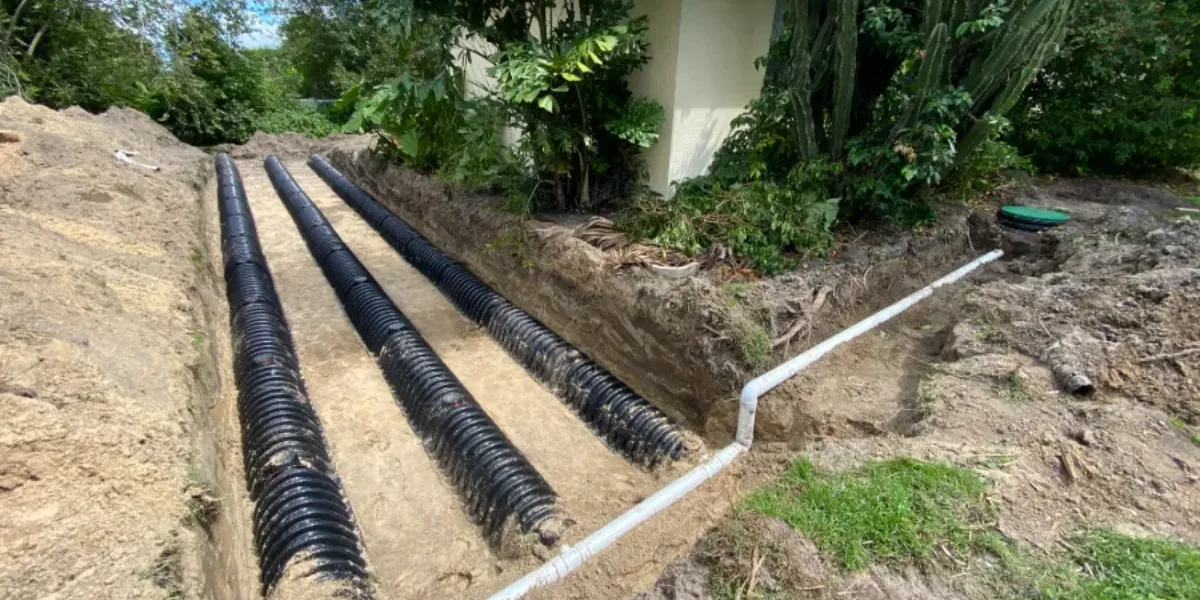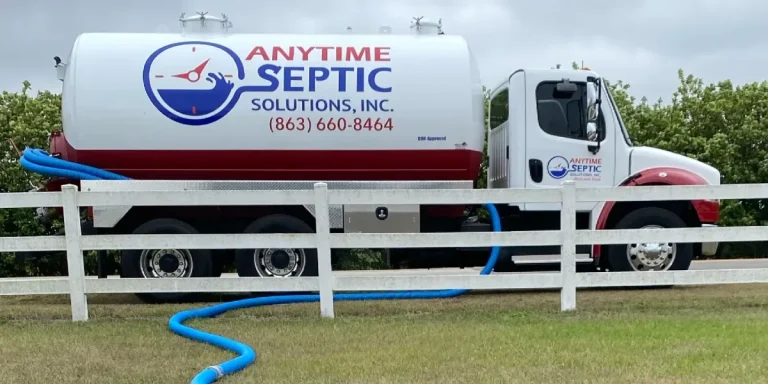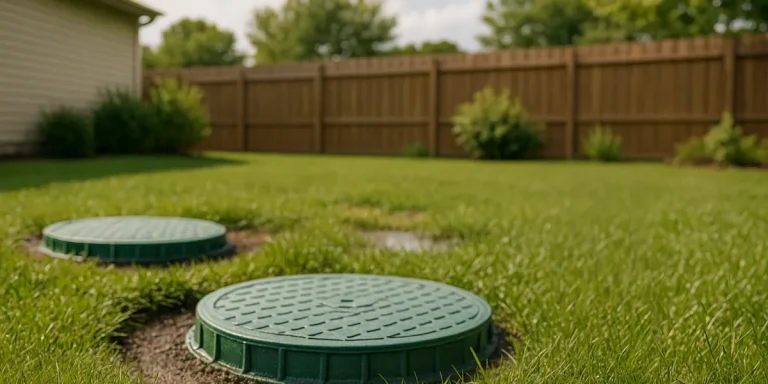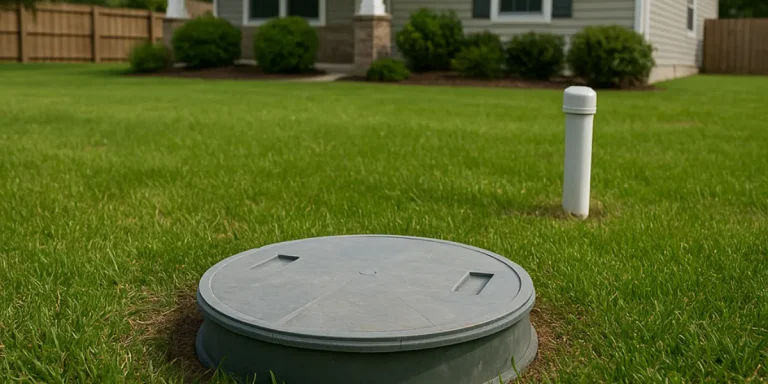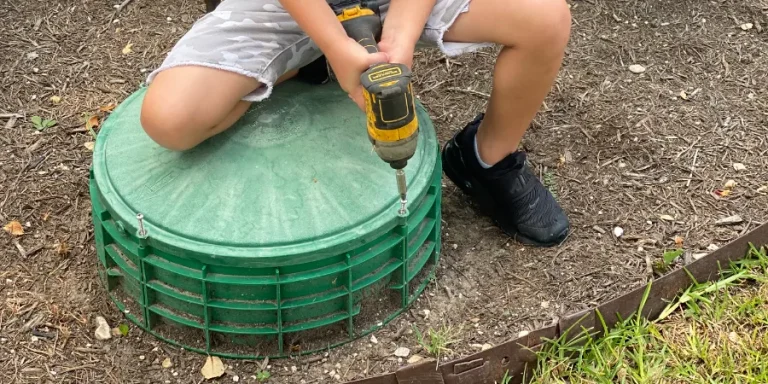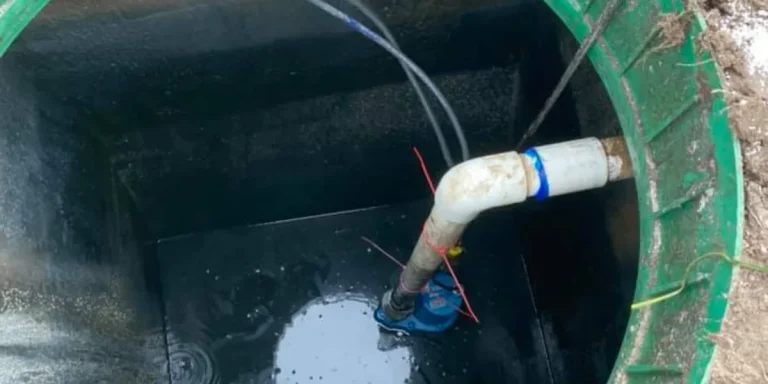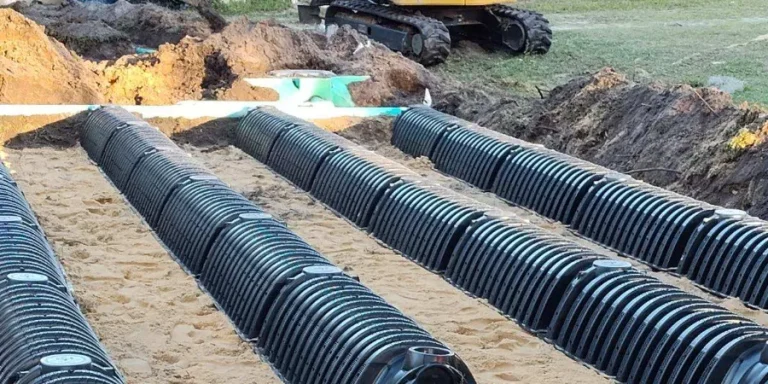Signs Your Drain Field Is Failing After Heavy Rain
Florida’s rainy season can cause more than just puddles in the yard—it can put your septic system under real stress. When the soil becomes saturated, your drain field may not be able to absorb wastewater properly. That can lead to serious issues, including system backups, yard flooding, and contamination. Recognizing the early signs of drain field failure can help you avoid expensive repairs.
What Is a Drain Field and Why It Matters
A drain field—also referred to as a leach field or absorption field—is a critical component of your septic system. After wastewater flows from your home into the septic tank, it undergoes initial treatment where solids settle and scum rises. The partially treated liquid, called effluent, then flows into the drain field for final treatment and disposal.
How It Works:
The drain field is made up of a series of perforated pipes or chambers buried in trenches beneath your yard. These pipes slowly release the effluent into the surrounding soil, where it is further filtered by natural microbial activity. This final step removes harmful bacteria, viruses, and nutrients before the water reenters the groundwater system.
Why It’s So Important:
-
- Protects your property: A properly working drain field ensures wastewater is safely and invisibly processed underground, preventing surface pooling or soggy lawns.
- Prevents health hazards: By treating wastewater effectively, the drain field prevents pathogens and contaminants from entering your yard, well water, or nearby lakes and streams.
- Supports long-term septic performance: A healthy drain field allows your entire septic system to function efficiently. When it fails, the entire system is at risk—and so is your home’s plumbing.
The Risk After Heavy Rain:
In Polk County and other parts of Central Florida, frequent and intense rainstorms can saturate the soil around your drain field. When the ground becomes waterlogged, it can't absorb wastewater properly. This leads to:
-
- Effluent backing up into the septic tank and plumbing
- Waste surfacing in the yard
- Sewage odors and standing water
- Potential contamination of nearby groundwater sources
A waterlogged drain field doesn’t just stop working—it creates a chain reaction of septic issues that can be both costly and hazardous. That’s why it’s essential to monitor your drain field, especially during and after Florida’s rainy season.
Common Signs of Drain Field Failure After Rain
When heavy rain saturates the ground in Polk County, it can overwhelm your septic system—especially the drain field. A failing drain field can’t properly absorb and treat wastewater, leading to visible symptoms around your property and inside your home. Recognizing these signs early is key to avoiding system-wide failure and expensive repairs.
Here are the most common warning signs that your drain field may be failing after significant rainfall:
1. Standing Water or Soggy Areas in the Yard
When the soil is oversaturated and can’t absorb additional wastewater, it begins to collect at the surface. This is one of the most noticeable and urgent signs of a failing drain field.
What to look for:
-
-
- Large puddles or pooling water directly above or around your drain field
- Spongy or mushy soil underfoot, even several days after rain
- Persistent wet spots in areas that should dry quickly under normal conditions
-
If your yard resembles a marsh long after the rain has passed, your system could be leaking or unable to drain properly.
2. Foul Odors Around the Property
A properly functioning septic system should never smell. When your drain field fails to filter wastewater correctly, sewage odors can escape to the surface or even into your home.
Common complaints include:
-
-
- A strong sewer or rotten egg smell near the drain field, septic tank, or outdoor plumbing
- Musty or moldy odors around the yard after storms
- Interior smells coming from drains, particularly during humid or rainy weather
-
These odors are caused by untreated or poorly treated wastewater rising to the surface—and they should never be ignored.
3. Slow Drains or Plumbing Backups
If rain is causing your drain field to stop functioning, the septic tank can no longer empty efficiently. This backup of wastewater can quickly affect your household plumbing.
Watch for:
-
-
- Slow drainage from sinks, bathtubs, and showers
- Water that gurgles or bubbles before draining
- Toilets that flush sluggishly or overflow
- Sewage backing up into tubs, floor drains, or sinks during or after storms
-
Even if the problem seems minor, slow plumbing combined with wet weather is often a red flag for septic overload.
4. Lush, Rapidly Growing Grass Over the Drain Field
Wastewater is rich in nutrients like nitrogen and phosphorus. When it's not draining properly underground, it can act like fertilizer on the surface—causing grass in the area to thrive unnaturally.
Key indicators include:
-
-
- Patches of grass that are visibly greener, thicker, or faster-growing than the rest of the yard
- Lawn areas that remain wet or damp longer than usual
- A clear contrast between the grass above the drain field and nearby zones
-
This may seem like a bonus at first, but in reality, it’s a symptom that wastewater is reaching the surface where it shouldn’t be.
5. Gurgling Sounds from Plumbing Fixtures
Air trapped in your septic system due to a slow or failing drain field often escapes through household drains. These unusual noises are often overlooked but can be an early sign of trouble.
Listen for:
-
-
- Gurgling or bubbling noises in sinks, bathtubs, or toilets after flushing
- Sounds that occur when multiple fixtures are used in quick succession
- Air pockets “burping” through drains as wastewater struggles to move
-
Gurgling sounds may indicate that your tank is backing up due to saturation in the drain field.
Don’t Ignore the Warning Signs
If you’ve noticed one or more of these issues—especially after recent storms—it’s important to act quickly. Drain field problems can worsen rapidly, leading to complete system failure, property damage, and environmental contamination.
Anytime Septic Solutions offers fast, honest diagnostics and expert drain field repairs throughout Polk County. Contact us today for an inspection if you're concerned about your system's performance after heavy rain.
Don’t Wait—Address Drain Field Problems Early
If your drain field is failing, delaying repairs can lead to system-wide failure, property damage, and potential health hazards. Rain only reveals problems that may have been building for months or years. The sooner you act, the more affordable and manageable the solution will be.
How Anytime Septic Solutions Can Help
At Anytime Septic Solutions, we specialize in septic repairs caused by Florida’s seasonal downpours. Our licensed technicians are trained to diagnose drain field issues quickly and recommend the most cost-effective path forward.
We offer:
-
- Professional drain field inspections and diagnostics
- Septic tank pumping and cleaning services
- Drain field repair or replacement
- Septic system upgrades and real estate inspections
We understand Polk County’s soil conditions, weather patterns, and permitting process—so we can solve the problem right the first time.
Proudly Serving Polk County, Florida
We provide expert septic services throughout Central Florida, including:
-
- Bartow
- Davenport
- Eagle Lake
- Fort Meade
- Frostproof
- Haines City
- Lake Alfred
- Lake Wales
- Lakeland
- Mulberry
- Polk City
- Winter Haven
Schedule a Drain Field Inspection Today
If you've noticed puddles in your yard, foul smells, or slow drains after a storm, it’s time to have your system checked. Our experienced team will assess the situation and offer honest recommendations for repair or replacement—no pressure, just solutions.
Call Anytime Septic Solutions or request a free estimate online today. We’re your local drain field experts, serving all of Polk County with dependable, professional septic care.

